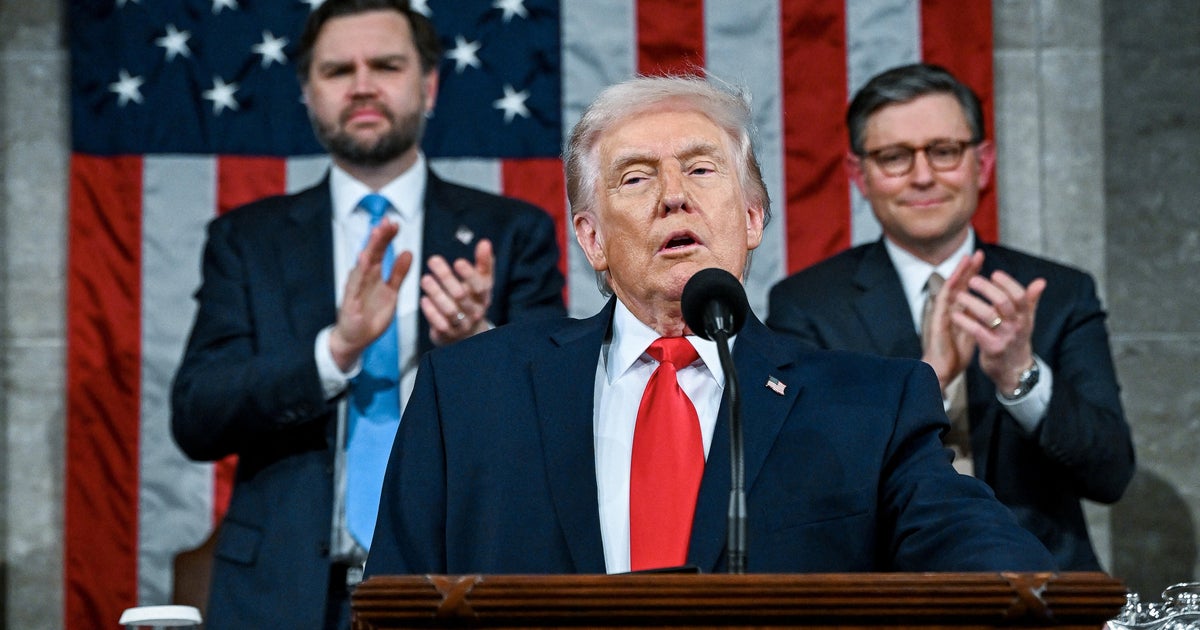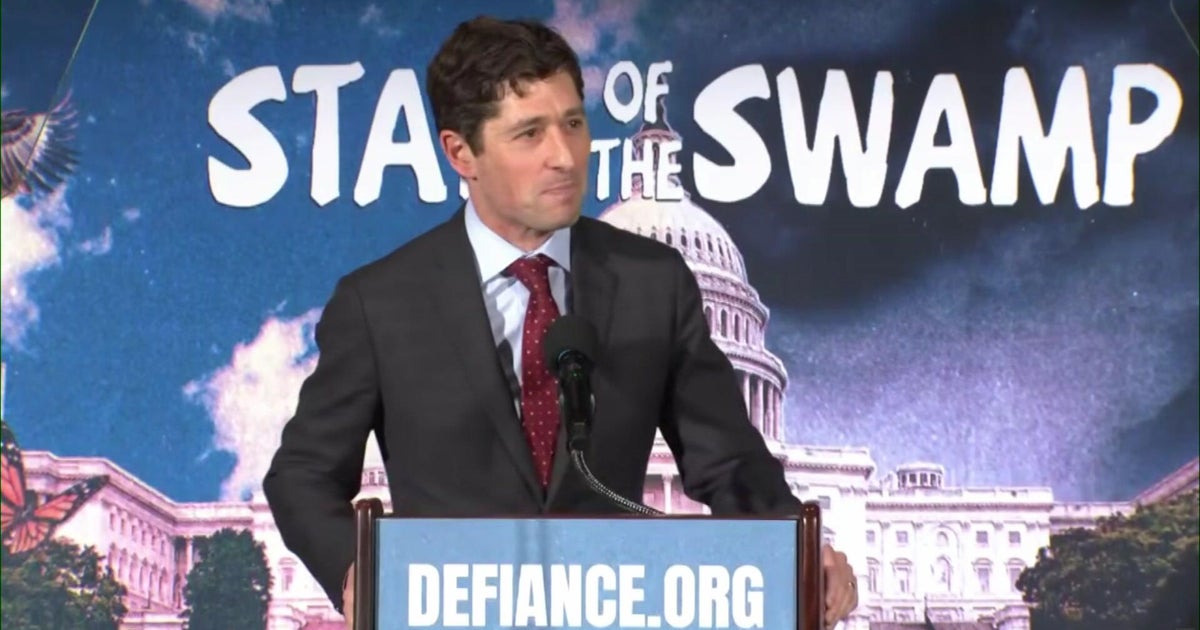Biden announces sweeping new sanctions against Russia
Washington — The Biden administration issued a wide range of sanctions against Russia on Thursday in retaliation for recent incursions including the SolarWinds cyber espionage campaign and Moscow's interference in the 2020 presidential election.
"We cannot allow a foreign power to interfere in our democratic process with impunity," President Biden said in remarks announcing the sanctions on Thursday. He said he "was clear with President Putin that we could have gone further," and that wanted a "stable, predictable relationship" with Russia.
"Now is the time to de-escalate," Mr. Biden said. "Where there's an interest for the United States to work with Russia, we should and we will."
However, Mr. Biden was clear that any acts of aggression by Russia would be met with a proportional response. The president said that U.S. officials were working with Russian officials to possibly set up a summit with Mr. Biden and Putin in a third location.
The sanctions target more than 30 Russian entities and include the expulsion of at least 10 Russian individuals from the U.S., including intelligence officials and diplomats. The administration also issued an executive order barring U.S. financial institutions from purchasing ruble-denominated bonds beginning in June of 2021, according to a White House fact sheet.
"The Biden administration has been clear that the United States desires a relationship with Russia that is stable and predictable," the White House said. "We do not think that we need to continue on a negative trajectory. However, we have also been clear — publicly and privately — that we will defend our national interests and impose costs for Russian Government actions that seek to harm us."
Administration officials have vowed for weeks to exact costs from Moscow. In a call with Russian President Vladimir Putin on Tuesday, President Biden said the U.S. would "act firmly" in defense of its national interests while proposing a summit with the Russian leader to discuss a "full range of issues."
The White House also said it was responding to reports that Russia encouraged Taliban fighters to injure or kill coalition forces in Afghanistan. "Given the sensitivity of this matter, which involves the safety and well-being of our forces, it is being handled through diplomatic, military and intelligence channels," the White House statement said.
Reports of the alleged bounties on U.S. troops prompted many questions and criticisms of the last administration about what former President Donald Trump knew and how he would respond. But the White House last year said that Mr. Trump wasn't briefed on the reported intelligence because it had not been verified.
White House press secretary Jen Psaki said Thursday the intelligence community assessed with "low to moderate confidence" that Russian intelligence officers sought to encourage attacks on U.S. and coalition forces by the Taliban in Afghanistan, in part because the intelligence relied on detainee reporting and due to the "challenging operating environment in Afghanistan."
"We felt the reports were enough of a cause of concern that we wanted the intelligence community to look into those reports as a part of this overall assessment," she said.
National Security Adviser Jake Sullivan told reporters Thursday that during their call, Mr. Biden informed Putin the U.S. was about to respond to cyber intrusions and election interference by Russia.
Sullivan summarized Mr. Biden's comments to Putin as, "He said, 'I told you that I was going to look into this, I made a determination that Russia has, in fact, conducted these actions. And I'm a man of my word, I am going to respond. But I'm not looking to escalate, I'm looking to provide proportionate responses. And I believe that it is in our interest to find a stable and predictable way forward in this relationship.'"
According to an unclassified report from the U.S. intelligence community, Putin authorized influence campaigns aimed at hurting Mr. Biden's candidacy during the 2020 election and boost former President Donald Trump.
"A key element of Moscow's strategy this election cycle was its use of proxies linked to Russian intelligence to push influence narratives — including misleading or unsubstantiated allegations against President Biden — to U.S. media organizations, U.S. officials, and prominent U.S. individuals, including some close to former President Trump and his administration," the declassified report released by the Office of the Director of National Intelligence stated.
Last year, cybersecurity researchers identified a hack of a piece of software called SolarWinds — an intrusion that initially gave cyber criminals access to 18,000 government and private computer networks, though a much smaller number were the actual targets of espionage, according to the Cybersecurity and Infrastructure Security Agency (CISA). Hackers gained access to digital files of several U.S. government agencies, including the Treasury, Justice and State Departments.
The National Security Agency, FBI and CISA formally attributed the attack to Russia on Thursday, saying the country's Foreign Intelligence Service, or SVR, directed the intrusions. A joint advisory from the agencies identified five vulnerabilities that the SVR exploited to carry out the attack.
Microsoft President Brad Smith in February told "60 Minutes" that the SolarWinds hack was "the largest and most sophisticated attack the world has ever seen."
The U.S. has also publicly warned Russia against aggressive actions in Ukraine. Russia has amassed more than 40,000 troops on Ukraine's eastern border, and more than 40,000 in Crimea, the region that Putin annexed away from Ukraine and declared Russian in 2014.
On Wednesday, at a meeting in Brussels with NATO allies, Secretary of State Antony Blinken said the U.S. is "deeply concerned about what we're seeing, about Russia's ongoing aggressive actions, rhetoric directed at Ukraine."
Top intelligence officials on Wednesday told a Senate panel that Russia would continue to employ "a variety of tactics" to undermine the U.S., including mercenary operations, assassinations, arms sales, cyber capabilities and malign influence campaigns — but that Moscow did not seek military conflict.
Grace Segers, Rebecca Kaplan, Nancy Cordes, Sara Cook and Melissa Quinn contributed reporting.





